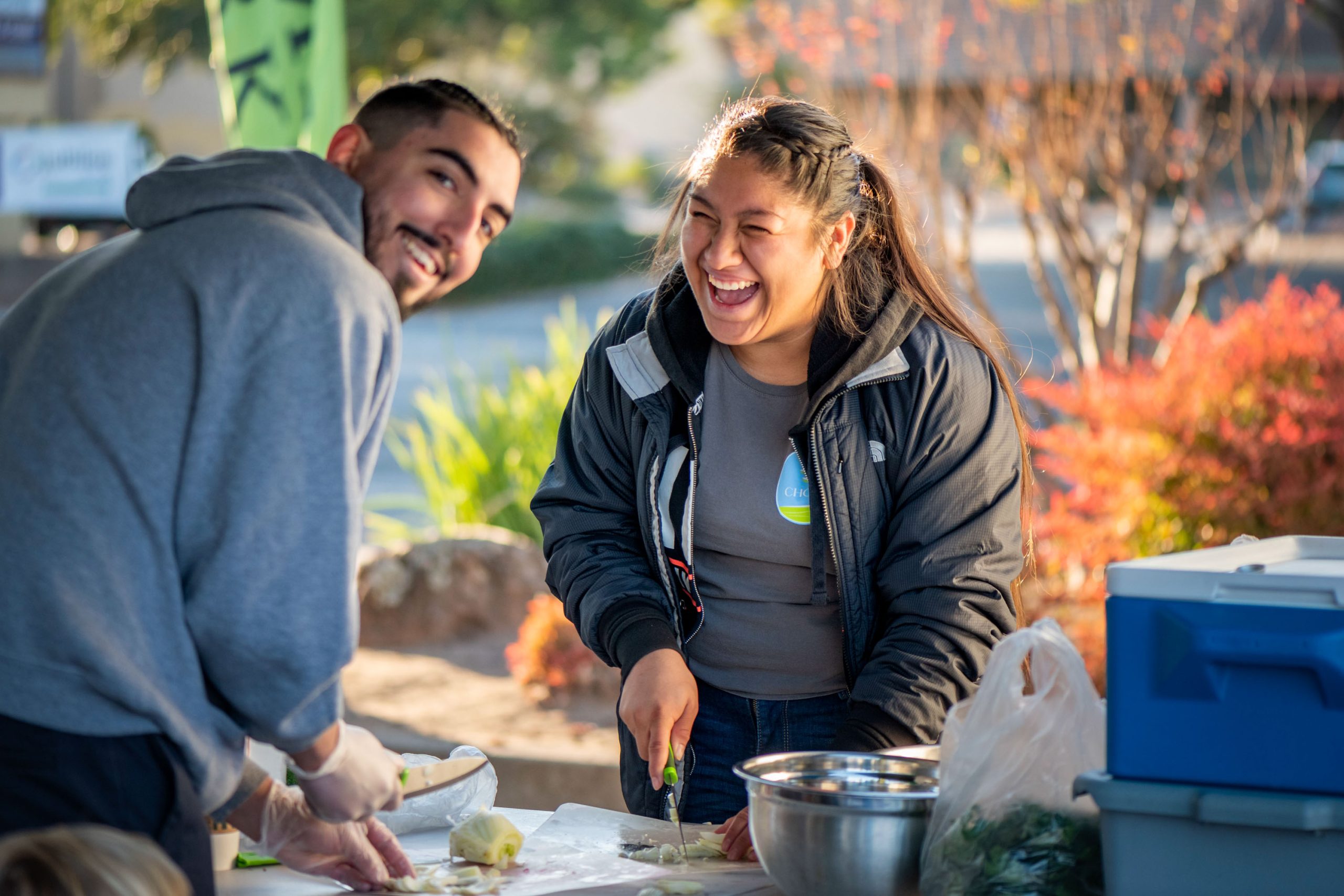Chico State defines Service Learning as "academic study linked to community service through structured reflection so that each reinforces the other." CHC provides unique, hands-on opportunities and experiences that reinforce the material and information learned in the classroom.
Hands-on experiential learning helps reinforce concepts learned in coursework. University students have the opportunity to lead teams delivering community-based nutrition education and to develop professional skills essential for employment. The CHC internship model also allows students to get involved in all aspects of partnership development and program design, implementation, and evaluation, and to undertake community engagement both comfortably and competently.
University-community partnerships drive the development of CHC programs. Chico State students are fully engaged in all aspects of partnership development, program design, implementation, management, and evaluation. CHC provides paid and unpaid civic engagement opportunities for more than 100 multi-disciplinary university students per year. The Center has been effective at increasing recruitment and retention of underrepresented minority students and with an annual student payroll of $250,000, assisting financially needy students in initiating and completing their university education by providing paid student employment opportunities.
A collective CHC, Chico State, and community partner goal is to assist communities in building the infrastructure needed to meet the health and educational needs of area residents. CHC provides leadership, diversity, resources, university students and well-trained graduates, as well as funding to expand services and help build the infrastructure necessary for North State communities to develop, implement, and sustain efforts.
The goal is that students will learn health promotion skills, acquire the ability to identify needs and strategies to address those needs, integrate civic engagement experiences with the lifelong practice of “giving back,” network with area school and community leaders, and ultimately make their career contributions here in the North State where they are critically needed.
During and after a CHC internship and paid position, students can add the following to their resumes
• Understanding and practice of professional office policies and procedures
• Time management
• Event planning
• Health promotion skills
• Strategies to address the needs of underserved populations
• Familiarity with local, state, and national policies that promote civic engagement and lifelong practice of “giving back”
• Peer mentoring and leadership experiences
CHC promotes employability by
• Helping to develop and/or revise resumes
• Providing interview guidelines and actual interviews for paid positions
• Providing administrative, fiscal, and programmatic skills (e.g. activities and reporting)
• Promoting job opportunities via various listservs to students during their last semester and/or post-graduation
